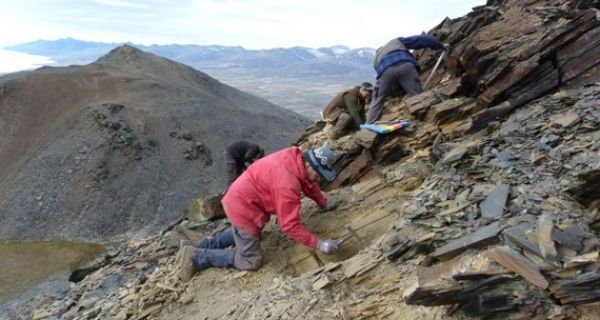520 million years ago, animals had just started to diversify on Earth. Only a few but precious biotas containing these animals are preserved until today as fossils. One of these rare collections is found on the northeastern coast of Greenland, Denmark.
An extraordinary aspect of the fossils preserved in Greenland is that they were buried in the environment they lived in. They had not – as is the case with most other fossils of early animal biotas – been transported with mud to other burial sites.
For science, studying these fossils is extremely important because they provide rare insight to the environment that these earliest animals lived in.
One scientist occupied with fossilized clues to life on early Earth, is geochemist Emma Hammarlund from the University of Southern Denmark/Lund University in Sweden. She is trained in conducting geochemical analyzes of millions of years old clays and interpreting what they have to say about the conditions in the air and water columns of the past.
Continue reading at University of Southern Denmark.
Image via University of Southern Denmark.


